THE recent challenge by Datuk Seri Anwar Ibrahim's defence team against the validity of the Attorney-General's certificate to transfer his sodomy case from the Sessions Court to the High Court has again highlighted the need to seriously examine the role of the Attorney-General.
The Attorney-General, it was argued, was not competent to issue the certificate as a report, which had been made against him for alleged tampering with evidence in Anwar's first sodomy case in 1988, was still being investigated.
The Kuala Lumpur Sessions Court ruled last Friday that the certificate was invalid.
The scope of the Attorney-General's powers in Malaysia has long been a subject of debate and controversy. He is the chief legal adviser to the government and is responsible for advising ministers involved in legal proceedings in their official capacity.
But as public prosecutor, he is also entrusted with power, which he uses at his discretion, to start, conduct or discontinue any proceedings for an offence, other than proceedings before a Syariah court, a native court or a court-martial.
His dual role has posed a real problem. A conflict of interest is bound to arise if he has to institute criminal proceedings against members of the government.
The ongoing Altantuya Shaariibuu prosecution, surrounded by rumours involving important political figures, is a case in point.
Some countries in the Commonwealth, such as Australia and Canada, do not have such a problem. There the job of reviewing evidence, and beginning and conducting prosecution of offences, is entrusted to a Director of Public Prosecutions.
Since he is unencumbered by the sort of duties and functions the Attorney-General has, he is kept away from direct government influence and is able to act with impartiality in assessing whether or not to prosecute a case.
His decision is based on whether there is a realistic prospect of conviction on the evidence available and whether it is in the public interest for the prosecution to begin.
The Attorney-General in such a system would be a government minister. This would remove the structural defect in the present Malaysian system which constantly invites accusations that the Attorney-General is motivated by bias or is being selective in instituting criminal proceedings.
If he were made a part of the political party in power, the Attorney-General would not need to pretend to be neutral.
Though not directly involved in deciding whether to institute criminal prosecutions, he should be responsible for overseeing and superintending the prosecution services of the country and should answer to Parliament for the conduct of the Director of Public Prosecutions and of his department.
There is currently no formal mechanism requiring the Attorney-General to account for his conduct in relation to prosecutions of criminal proceedings. In spite of the wide powers he wields, he has no duty to report to the prime minister, cabinet or Parliament.
There has been no call for him to account for the failure of a number of high-profile prosecutions, which commenced with much fanfare but ended up being a waste of public funds.
Last year, Tan Sri Eric Chia, the former managing director of Perwaja Steel, was acquitted after 43 days of trial without his defence being called.
In acquitting the accused, the presiding High Court judge heavily criticised the conduct of the prosecution, especially their failure to call several key witnesses who had obvious knowledge of the material elements of the case.
With reference to particular key witnesses from Japan, the judge questioned whether it was the Japanese witnesses who were "reluctant" to come or "the prosecution was the one reluctant to bring them here".
The prosecution of Koh Kim Teck, a businessman, and his two bodyguards, who were charged with murdering 14-year-old Chinese national Xu Jian Huang, and who were acquitted in 2005, is another case in point.
After a trial lasting 36 days and with 39 prosecution witnesses having given evidence, the presiding judge found that the prosecution had not brought forward any evidence which could implicate the accused in the murder and that there had been no "prima facie" case made out to warrant the defence being called to answer the charge.
The prosecution had apparently omitted to call material witnesses, including the investigating officer for the case and Koh's driver who had reportedly given a cautioned statement that he had seen both bodyguards throw Xu into the swimming pool where he was eventually found. Two other material witnesses who were present in the house were also not called.
Yet another was the prosecution for the murder of Noritta Samsudin, where the accused was acquitted after 29 days of trial. The prosecution appealed against the acquittal right up to the Federal Court.
In dismissing the appeal, the Federal Court noted that there was a gaping hole in the prosecution's case, where it failed to sufficiently account for the likelihood of there being another person present at Noritta Samsudin's condominium unit who could also have committed the crime. No one else has been charged for the murder.
Any discussion on expensive and long-running criminal trials would not be complete without reference to the Irene Fernandez trial which spanned seven years and took over 300 days to complete.
It is still not over for the Tenaganita director, who was convicted in 2003 of publishing false news about the ill-treatment of detainees in camps for illegal immigrants. Her appeal against this conviction to the High Court has been the subject of numerous delays and has yet to be heard.
The Altantuya Shaariibuu murder trial will also go on record as one of the longest trials in Malaysian history.
After more than 150 days, Abdul Razak Baginda was acquitted of abetting the murder and discharged on Oct 31, while the two police officers charged with her murder have been called to enter their defence.
As it is the taxpayers' funds that ultimately pay for all criminal prosecutions, they have a vested interest in knowing how such cases, which appear to be ill-prepared, can be brought to trial.
It is imperative that the Attorney General's wide powers be subject to close scrutiny and not be permitted to be exercised arbitrarily.
If the government is truly serious in wanting to improve and restore public confidence in the administration of justice in this country, it must be prepared to review the presently unfettered powers of the Attorney-General.
Raja Aziz Addruse is a former Bar Council president and former president of the National Human Rights Society (Hakam). Ding Jo-Ann is a Kuala Lumpur-based lawyer.



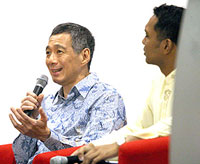
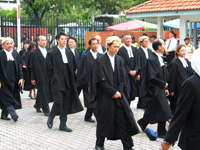 •
• 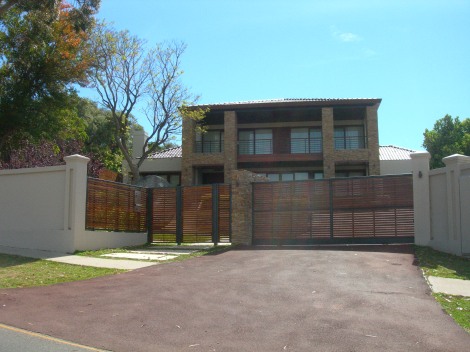
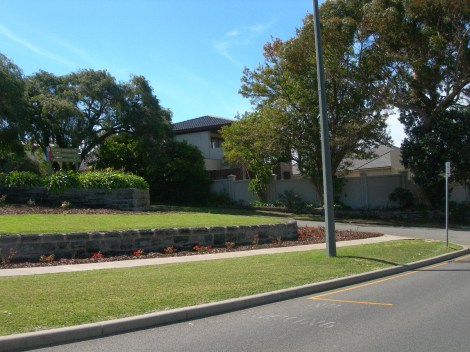



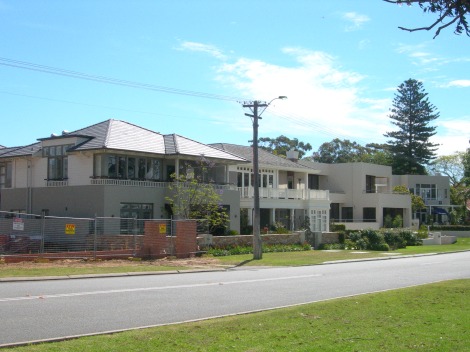


 Raja Petra, founder of the popular Malaysia Today website, which has outraged top leaders with its stream of critical stories, was detained in September for writing articles that allegedly insulted Islam.
Raja Petra, founder of the popular Malaysia Today website, which has outraged top leaders with its stream of critical stories, was detained in September for writing articles that allegedly insulted Islam.